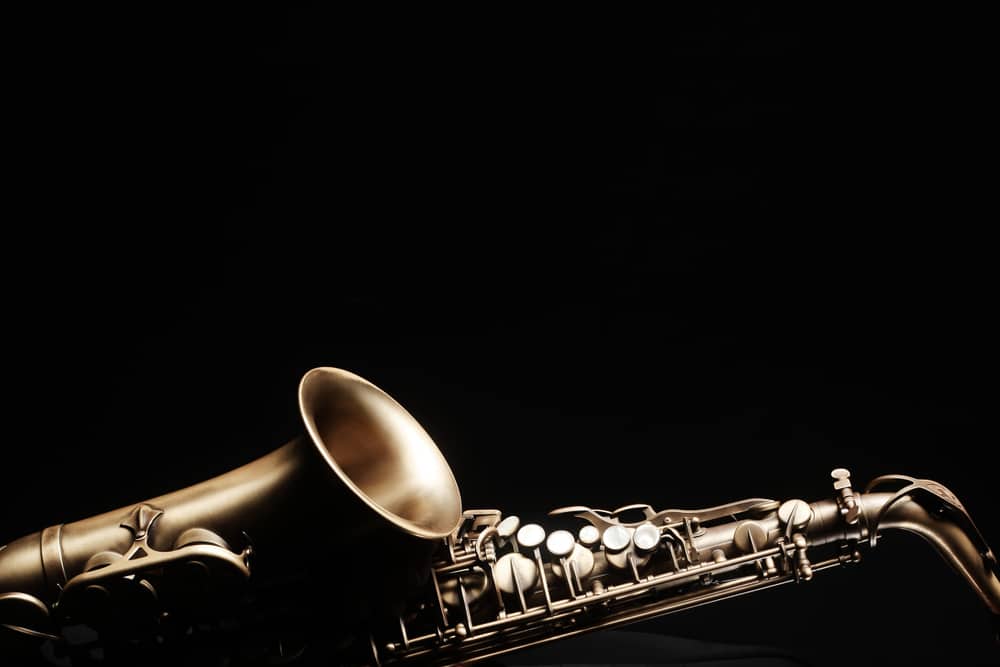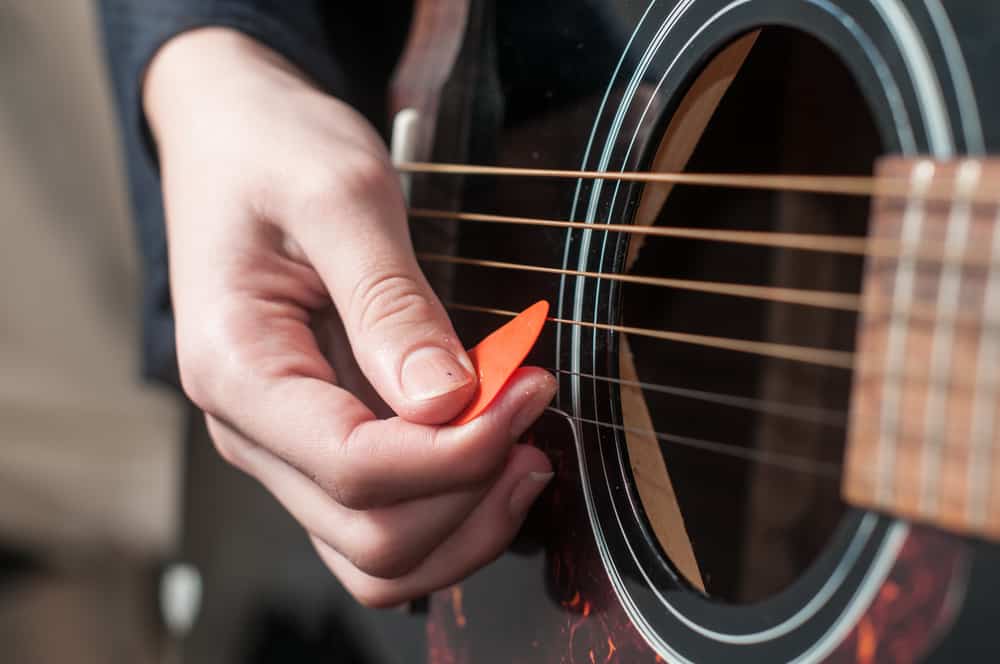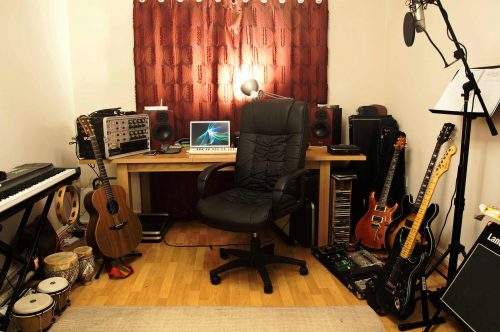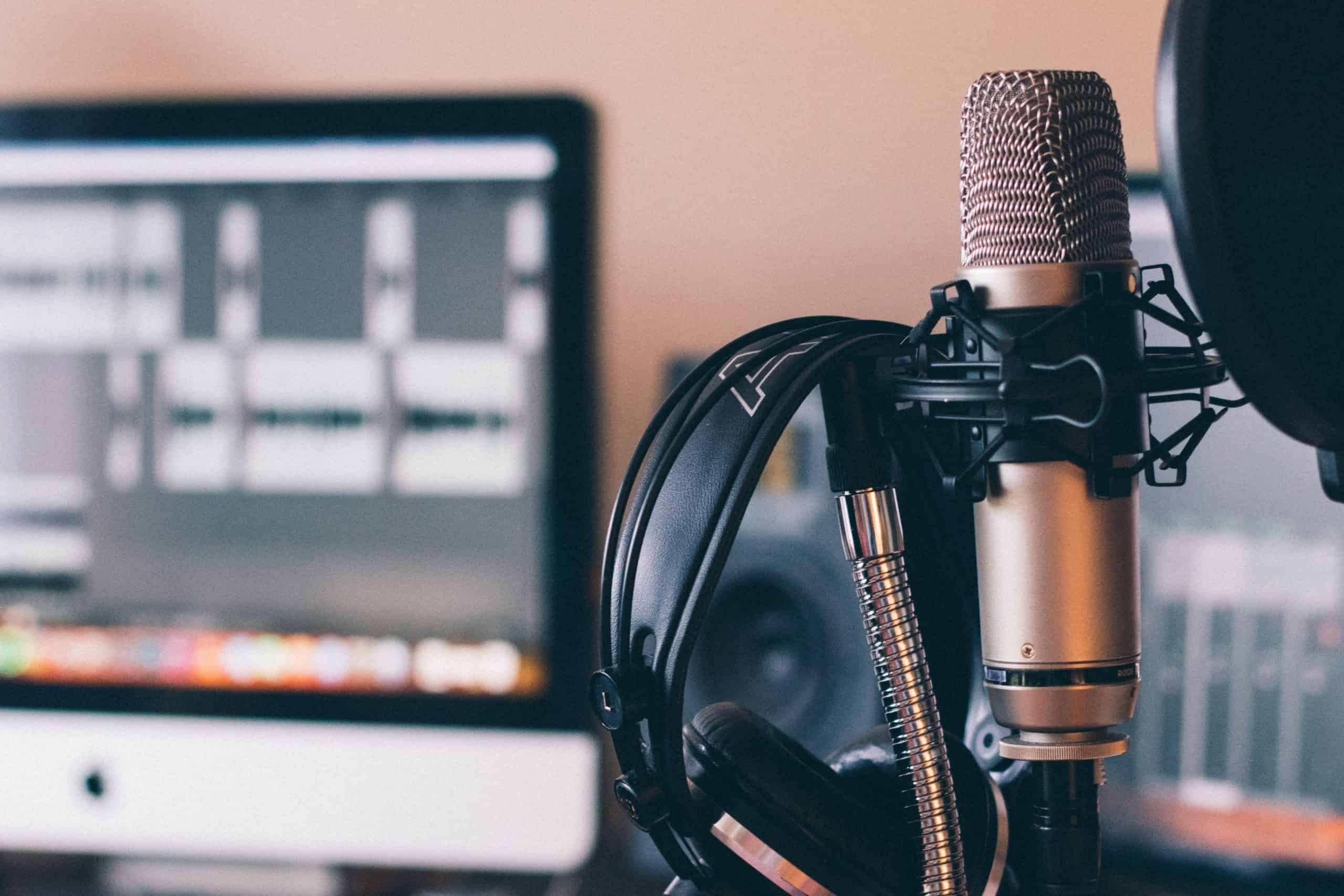How to Teach Yourself the Saxophone
The saxophone is such a versatile instrument. Although you may only think of the saxophone as a big player in jazz combos, this brass instrument can pack a punch in any genre.
Whether you’re starting out in your school’s band or you’re looking to learn a new instrument later in life, picking up a sax is never a bad idea.
From Bruce Springsteen’s E-Street Band’s, Clarence Clemens to Kenny G, saxophone playing can make different music genres shine with warmth and bass that can create a completely different atmosphere in a song with just a few notes.
You can teach yourself just about anything with enough hard work.
Is It Hard to Learn the Saxophone?

Experts say that it takes 10,000 hours to truly master something like an instrument, woodworking, painting, and even skills like math and science prowess. So, if you want to play like Kenny G, you gotta do the time!
If you’re picking up this brass instrument as a hobby, let’s work on the first five steps to getting started with the sax.
1. Listening Party:
What kind of music are you into? If you’re a traditional jazz lover you’re probably looking at artists like John Coltrain, Charlie Parker, Sonny Rollins, or Dexter Gordon.
These artists set the tone for jazz, rock ‘n roll, and gave way to the Jazz-Fusion artists of the next century. Look up anything John Coltrane and you’ll end up being inspired more than ever before.
One of our favorite performances is from his quartet. From the first note, you can hear the power of the saxophone and how delicate the instrument is when it comes to getting a beautiful, rich tone.
You’ll probably never play like him, but you can be inspired by him! Catch our drift? Keep up the excitement and you’ll practice much harder.
2. Sax Studying:
Now that you’ve been inspired, listened to records you like, and gotten excited about playing the sax, it’s time to study up.
Researching different styles of playing as well as picking up fundamentals from the internet are great, but ultimately you’ll need lessons to solidify your skills.
Before you invest in a potentially expensive instrument, you should do as much research as possible. There are a lot of great online resources if you’re considering playing the saxophone. We recommend Sax Tuition’s videos. The talented instructors show you how to get started as a beginner and help you see if you have aptitude to play brass instruments.
3. Picking the Brass:
So, you want to play the saxophone! Let’s pick out the right instrument for you to start on. Saxophones have different keys and designs to fit different styles. Which one will you choose and which one is right for you?
- Alto Sax (Eb): The alto saxophone is best for beginners. This instrument is light, easy to carry, and the scale is easy to move around on. It has a reputation for being the most popular for younger saxophone students starting in marching band or jazz ensembles at school. That doesn’t mean it’s not a professional sax key. It appears on songs in jazz, rock, and even pop genres.
- Tenor Sax (Bb) According to TomPlay, the tenor sax was popularized in the 1950s during the big-band era of music. Brass was king and supported acts like Dean Martin and Frank Sinatra in Las Vegas. The saxophone became as vital an instrument to big band, as the guitar is to rock and roll.
To get soaring tones, this saxophone has to be played right, but you’ll get there! This saxophone weighs a bit more than the alto sax and is played by more adults than children.
- Soprano Sax (Bb) The soprano saxophone is by far the hardest one to play. Higher notes on this instrument require an extremely high amount of air. In order to get to the point where you can play efficiently, you’ll need a lot of lessons.
This instrument is tuned to Bb just like the Tenor sax, but the fact that it is an octave higher gives it a lot more clout in the jazz world
4. Fundamentals:
If you really want to get started on the right foot with the saxophone, look into lessons. Children mostly learn brass instruments through their band classes in school.
This isn’t the best way to learn despite how good a music teacher is. Individualized lessons and support can go so much farther in the long run.

Try a local music school in your area or look at more advanced lessons within your child’s band program. If you’re an adult looking to start the saxophone you can take music lessons just about anywhere!
Google and Yelp are your friends when looking for music instructors. You want to find someone who is warm and friendly, who has your interest at heart.
You can also go the digital route and look for free resources. Here are some that we found:
- D’ Addario Woodwinds on YouTube
- Sheet Music, Tutorials by Rick Hirsch on YouTube
- Matt Otto Professional Lesson Archives
5. Play Your Favs:
Now that you’ve prepared, picked out your instrument, and started the fourney of music education, you’re ready to start playing!
If you are having lessons, you should discuss what your goals are with your instructor. Do you want to be a jazz improviser or are you more of a formulaic player? Do you want to have sax solos on rock songs or are you just looking to impress your friends with the lead line from “Careless Whisper?”
If you and your teacher can make you a good player and reach your goals, that’s the best way to go! Don’t you want to work toward something?
Is the Alto Sax Easy To Learn?
The Alto saxophone is the most popular key of sax for beginners. Children or teens in band class will often start with it. Some great reasons that the alto sax is great for first-time players include its light weight, easy finger positionings, and scale.
Anyone can play the saxophone, but the alto sax is the frontrunner to get you playing the quickest.
Since the alto sax has a lower scale relative to the tenor and soprano saxophones, it doesn’t require a ton of breath control or support to play. Of course, to be a great player you have to have all the fundamentals of breath working to produce a beautiful sax tone.
How Long Does It Take To Learn the Saxophone?
When you’re learning any instrument, you have to measure your success against your goals. If you’re an ambitious 10-year-old who has dreams of playing as a professional touring saxophonist, your learning curve is going to be much longer than someone who is picking up the instrument in their 50s, as a hobby.
Every single learner has a different way of hearing, feeling, and performing music. Some musicians are more technical and others have a lot of passion for improvising.

Whatever kind of player you are, it’s going to be a different journey. That being said, commonly, anyone can pick up the basics of an instrument within two months through daily practice.
Learning music basics like the staff, notes, scales, music notation and theory will make your actual playing curve longer, but will benefit you in becoming a top-notch player.
If you just want to play the melodies of your favorite Beatles tunes or are looking to just play around the house and not learn how to read music, you can try learning by ear if you have good pitch, but if you aren’t used to listening to music for long periods of time or are just a casual listener, it’s going to be a harder road.
Here are some quick-start tips for beginners:
- Get lessons once a week for at least half an hour to get your fundamentals down.
- Purchase a music stand and a beginner saxophone book to help your at-home practice. Ask your teacher for their recommendations.
- Practice for at least 3 hours per week.
- Have fun!
Is Saxophone Harder Than Guitar?

This is definitely a loaded question! All instruments have their unique attributes and challenges. For instance, you might see a ton of people breaking out guitars and playing a few chords at parties, but you definitely won’t see someone doing that with a saxophone.
If you measure it by “how cool is the instrument?” That’s subjective. If you’re measuring it by how easy it is, there’s no easier or harder instrument.
Both the saxophone and the guitar are instruments that take professionals a lifetime to master. The virtuosos of the instrument are phenomenal and have skills that developed over decades. There’s nothing easy about doing that on either the saxophone or the guitar.
So basically, this question is irrelevant! Pick up the instrument you want to play, not the one you think will be easier.
Is Trumpet Harder Than the Saxophone?
This is an easier comparison since the saxophone and trumpet are both brass instruments that typically appear in big bands and jazz ensembles.
If you want to play the trumpet you have to have some serious breath, mouth, and even lip control. To get to higher registers on a trumpet is like singing high notes. It’s hard!
Like we said before if you’re starting on an alto saxophone you’ll be in better shape to progress faster than the higher or lower keyed sax’s and even the trumpet.
Ultimately, whichever instrument you like playing most is going to be the one that’s easiest for you.
Can I Learn Saxophone Online?
You totally can learn the saxophone online.
Lessons will make it so you can learn in a structured space whether you’re in the room with a teacher or doing lessons over a video service like Zoom. But if you want to have an entirely independent experience we recommend these resources:
- ArtistWorks: Professionals are ready to play! Take guided lessons.
- Matt Otto Saxophone: This pro has tons of free resources for any level of player.
- Sage Music: This site has a great number of lessons in a variety of instruments. Even if the sax doesn’t work out – you can explore other options.
If you’ve read this whole article, then we know that you want to play the saxophone. Check out the online resources, talk to professionals, and then get going! We hope you enjoy your musical journey.










